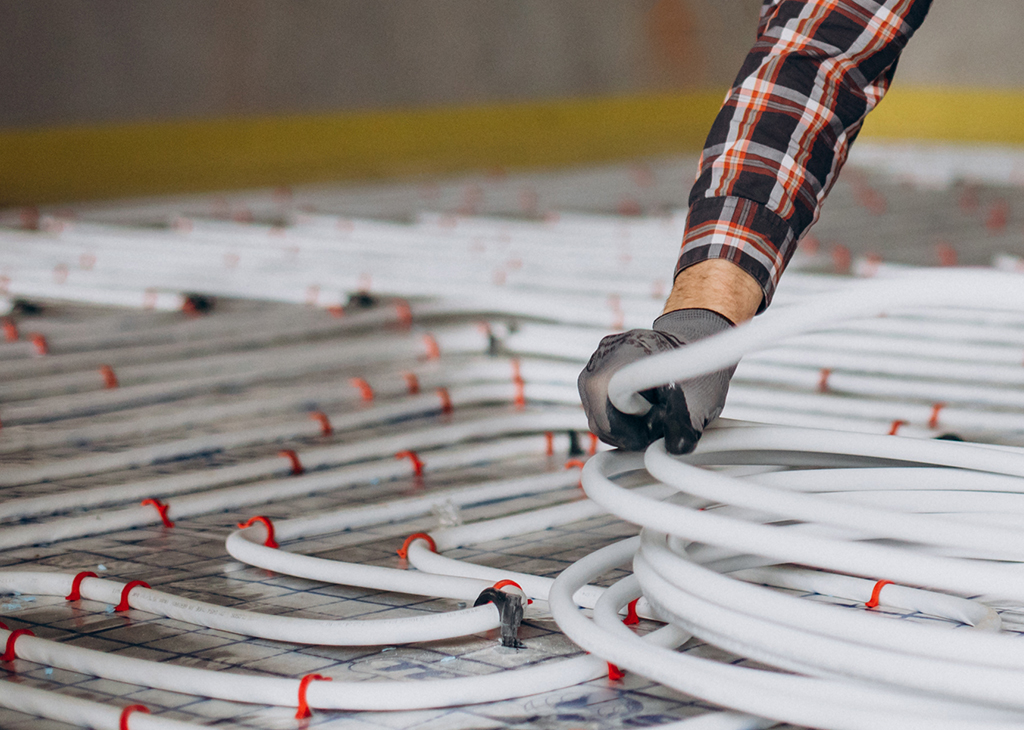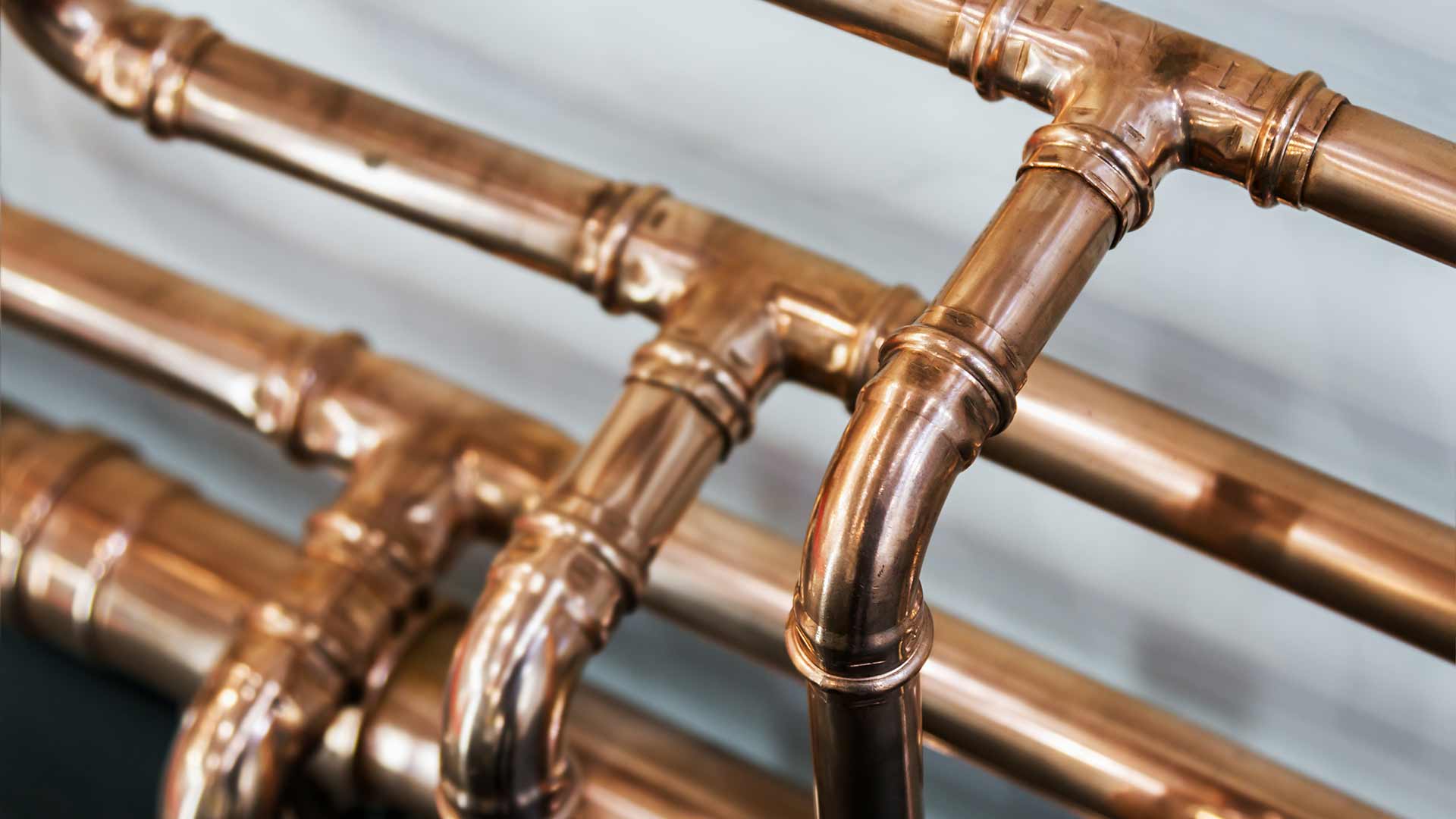When it comes to plumbing in Twin Falls, understanding the different types of pipes used in home plumbing systems is essential. Each type of pipe has its unique characteristics, benefits, and applications. Whether you’re planning a new plumbing installation, renovation, or simply want to be more informed about your home’s plumbing, this guide will help you understand the different types of pipes and their uses.
1. Copper Pipes
Copper pipes have been a staple in plumbing for decades due to their durability and reliability. They are resistant to corrosion and can handle high water pressure and temperature variations, making them ideal for both hot and cold water supply lines.
Pros:
- Long-lasting and durable
- Resistant to corrosion
- Suitable for hot and cold water
- Can be recycled
Cons:
- More expensive than other types
- Requires professional installation due to the need for soldering
2. PVC Pipes (Polyvinyl Chloride)
PVC pipes are widely used in residential plumbing for drain, waste, and vent systems. They are lightweight, easy to install, and resistant to corrosion and chemical damage. However, they are not suitable for hot water applications as they can warp or melt under high temperatures.
Pros:
- Inexpensive
- Easy to install
- Resistant to corrosion and chemicals
- Suitable for drain, waste, and vent systems
Cons:
- Not suitable for hot water
- Can become brittle over time with UV exposure

3. PEX Pipes (Cross-Linked Polyethylene)
PEX pipes have gained popularity in recent years for both hot and cold water supply lines. They are flexible, which makes them easy to install even in tight spaces. PEX pipes are resistant to scaling and chlorine, making them a great choice for modern plumbing systems.
Pros:
- Flexible and easy to install
- Resistant to scaling and chlorine
- Suitable for hot and cold water
- Less prone to leaks due to fewer fittings
Cons:
- Can be damaged by UV light
- Not recyclable
4. CPVC Pipes (Chlorinated Polyvinyl Chloride)
CPVC pipes are similar to PVC pipes but are treated with chlorine, which allows them to withstand higher temperatures. This makes CPVC suitable for hot and cold water supply lines. They are also resistant to corrosion and chemical damage.
Pros:
- Suitable for hot and cold water
- Resistant to corrosion and chemicals
- Easy to install
Cons:
- More expensive than PVC
- Can become brittle over time
5. Galvanized Steel Pipes
Galvanized steel pipes were commonly used in homes built before the 1960s. They are coated with a layer of zinc to prevent rusting. However, over time, the zinc can erode, leading to rust and corrosion, which can cause plumbing issues such as reduced water pressure and leaks.
Pros:
- Strong and durable
- Suitable for high-pressure applications
Cons:
- Prone to rust and corrosion over time
- Can cause water discoloration
- Heavy and difficult to work with
6. ABS Pipes (Acrylonitrile Butadiene Styrene)
ABS pipes are similar to PVC but are black and slightly more durable. They are commonly used for drain, waste, and vent systems. ABS pipes are easy to install and can handle colder temperatures without becoming brittle.
Pros:
- Durable and strong
- Easy to install
- Resistant to cold temperatures
Cons:
- Not suitable for hot water
- More expensive than PVC
Choosing the Right Pipe for Your Home
The type of pipe you choose for your plumbing system depends on various factors, including the specific application, local building codes, and your budget. Consulting with a professional plumber in Twin Falls can help you make an informed decision based on your needs and the characteristics of each pipe type.
Why Consult a Professional Plumber in Twin Falls?
A professional plumber in Twin Falls can provide valuable insights and recommendations tailored to your home’s specific plumbing needs. They have the expertise to properly install and maintain various types of pipes, ensuring the longevity and efficiency of your plumbing system.
In conclusion, understanding the different types of pipes used in Twin Falls homes is crucial for making informed decisions about your plumbing system. Whether you opt for the durability of copper, the flexibility of PEX, or the affordability of PVC, each type of pipe has its own set of advantages and considerations. For the best results, always consult a professional plumber in Twin Falls to guide you through the selection and installation process, ensuring your home’s plumbing is reliable and efficient for years to come.

